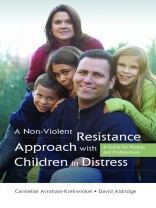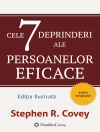Parents, teachers and other professionals often struggle to know how to deal with disruptive, abusive or aggressive behaviour. This book addresses the urgent need for a realistic, practical and effective approach to dealing with severe disruptive behaviour in children and adolescents.
Adapting the principles of non-violent resistance originally advocated by Mahatma Gandhi, the book provides de-escalation techniques which empower the adult and unburden the distressed child. The authors outline the theoretical basis upon which the approach was developed, and explain how and why it can be so effective. Case studies demonstrate how the approach can be used to reach more successful places with unhappy and disruptive children of different ages. A separate section for parents provides useful advice on how to take the theoretical material and use it to deal with problematic behaviour in everyday life.
As effective as it is original, this approach will empower desperate parents and despairing caregivers by equipping them with hands-on tools to contain, counter and positively direct the aggression and opposition which they face from children in distress.
Table of Content
Introduction. 1. The Politics of Family Conflict. 2. An Ecological Approach. 3. The Non-Violent Resistance Model. 4. From Theory to Practice – The Intervention. 5. Young Child with Self-Destructive Behaviour. 6. A Barricaded Teenager. 7. A Teen at Risk. 8. Family and Community. 9. The Child, the Parent and the School. 10. The Model of Non-violent Resistance – A Guidebook for Parents. 11. Overview. References.
About the author
Dr. Carmelite Avraham-Krehwinkel is an affiliate researcher at the Nordoff Robbins Centre in Witten, Germany. She has many years of experience in child, adolescent and family psychotherapy, and specialises in working with children with behavioural problems.












